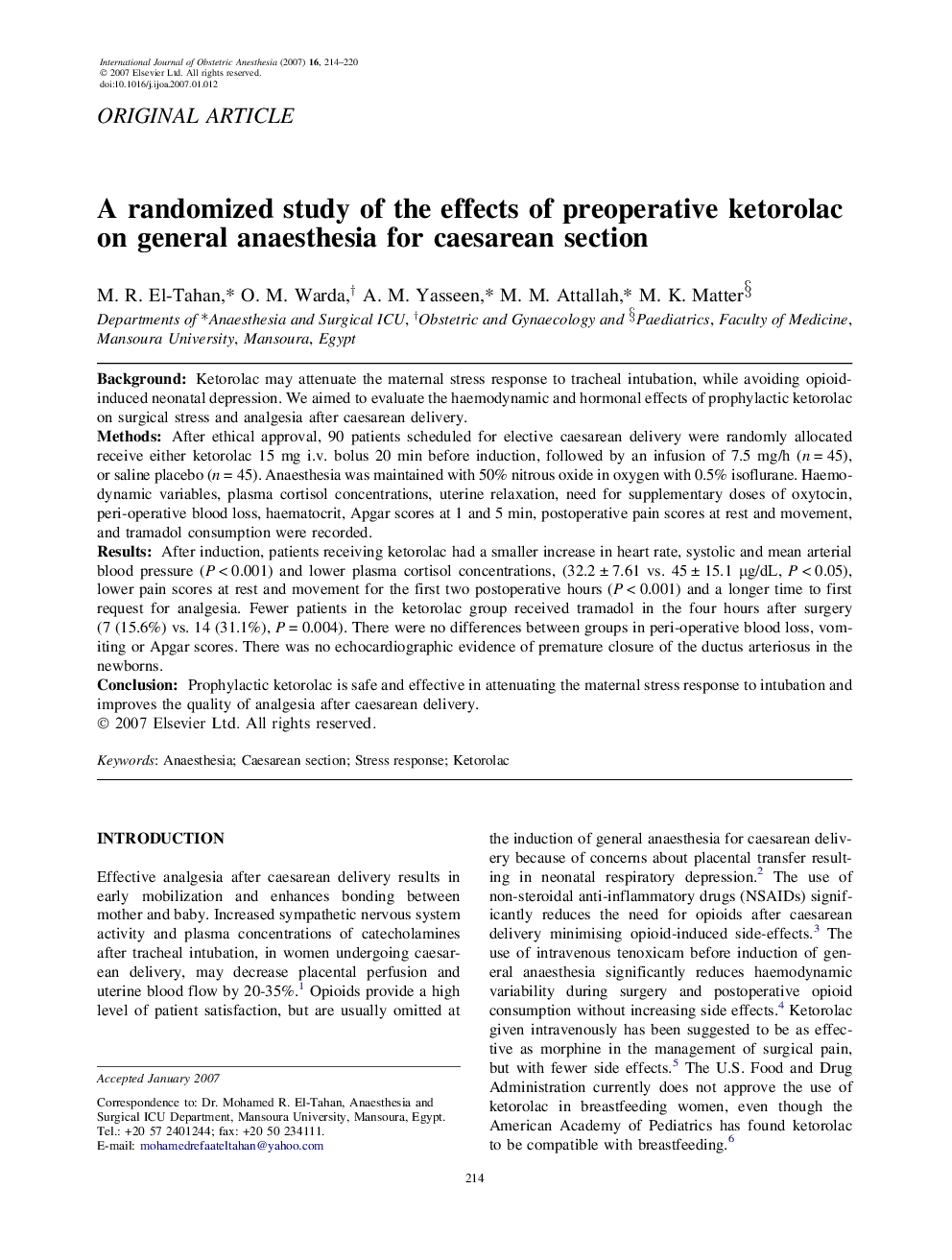| Article ID | Journal | Published Year | Pages | File Type |
|---|---|---|---|---|
| 2758585 | International Journal of Obstetric Anesthesia | 2007 | 7 Pages |
BackgroundKetorolac may attenuate the maternal stress response to tracheal intubation, while avoiding opioid-induced neonatal depression. We aimed to evaluate the haemodynamic and hormonal effects of prophylactic ketorolac on surgical stress and analgesia after caesarean delivery.MethodsAfter ethical approval, 90 patients scheduled for elective caesarean delivery were randomly allocated receive either ketorolac 15 mg i.v. bolus 20 min before induction, followed by an infusion of 7.5 mg/h (n = 45), or saline placebo (n = 45). Anaesthesia was maintained with 50% nitrous oxide in oxygen with 0.5% isoflurane. Haemodynamic variables, plasma cortisol concentrations, uterine relaxation, need for supplementary doses of oxytocin, peri-operative blood loss, haematocrit, Apgar scores at 1 and 5 min, postoperative pain scores at rest and movement, and tramadol consumption were recorded.ResultsAfter induction, patients receiving ketorolac had a smaller increase in heart rate, systolic and mean arterial blood pressure (P < 0.001) and lower plasma cortisol concentrations, (32.2 ± 7.61 vs. 45 ± 15.1 μg/dL, P < 0.05), lower pain scores at rest and movement for the first two postoperative hours (P < 0.001) and a longer time to first request for analgesia. Fewer patients in the ketorolac group received tramadol in the four hours after surgery (7 (15.6%) vs. 14 (31.1%), P = 0.004). There were no differences between groups in peri-operative blood loss, vomiting or Apgar scores. There was no echocardiographic evidence of premature closure of the ductus arteriosus in the newborns.ConclusionProphylactic ketorolac is safe and effective in attenuating the maternal stress response to intubation and improves the quality of analgesia after caesarean delivery.
